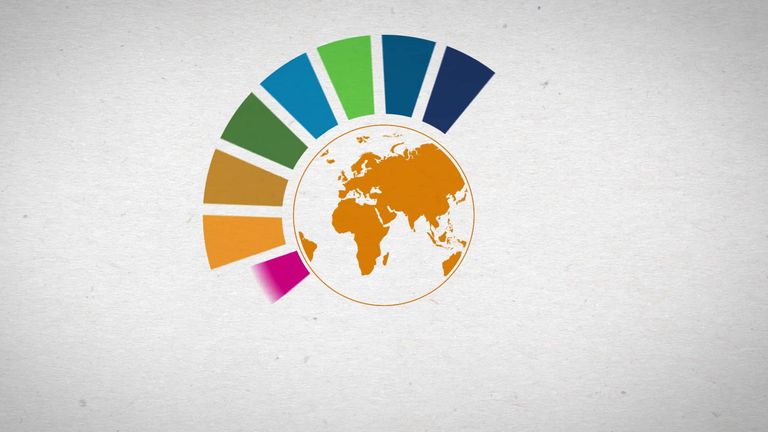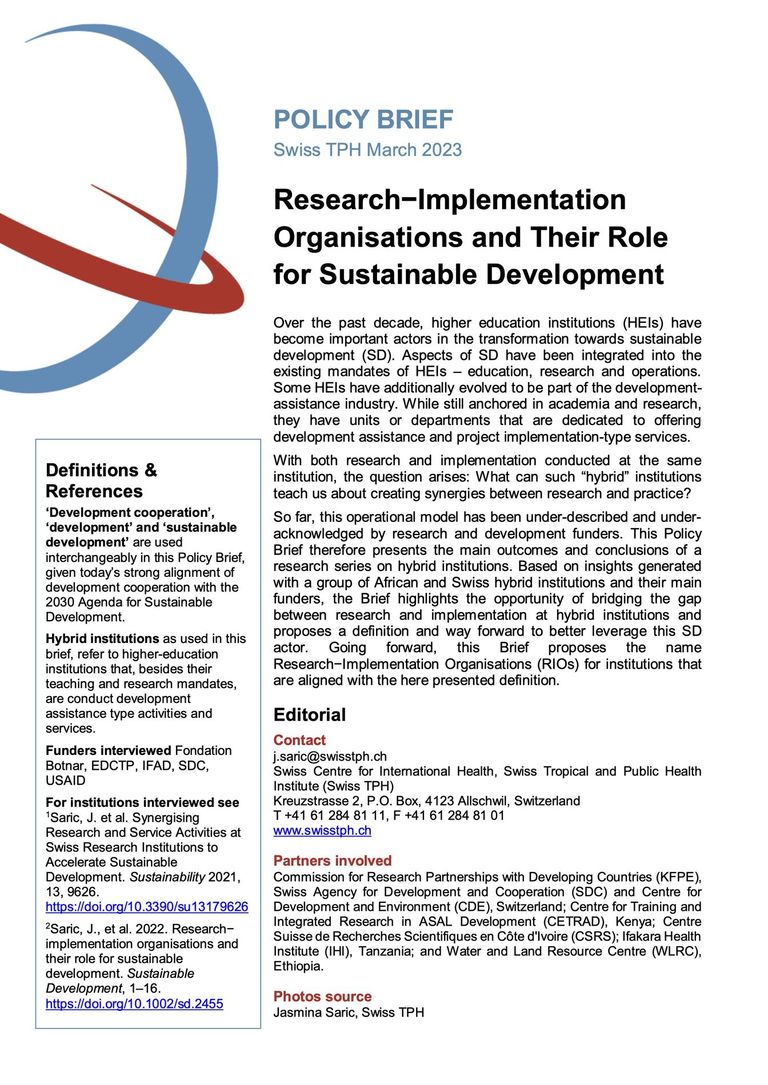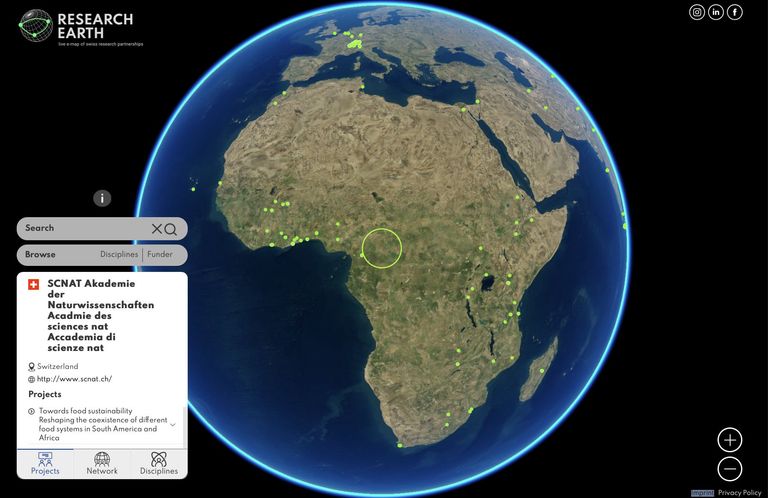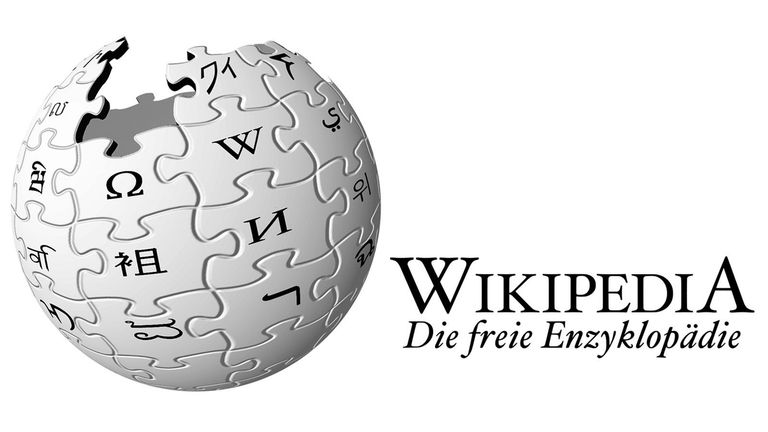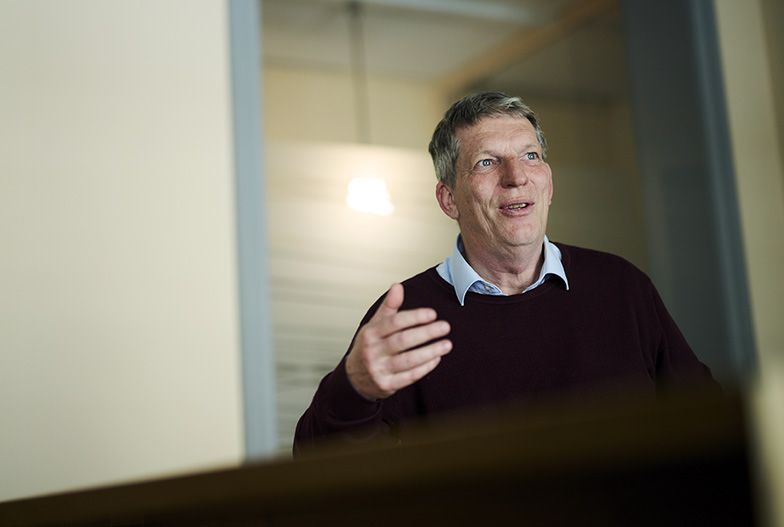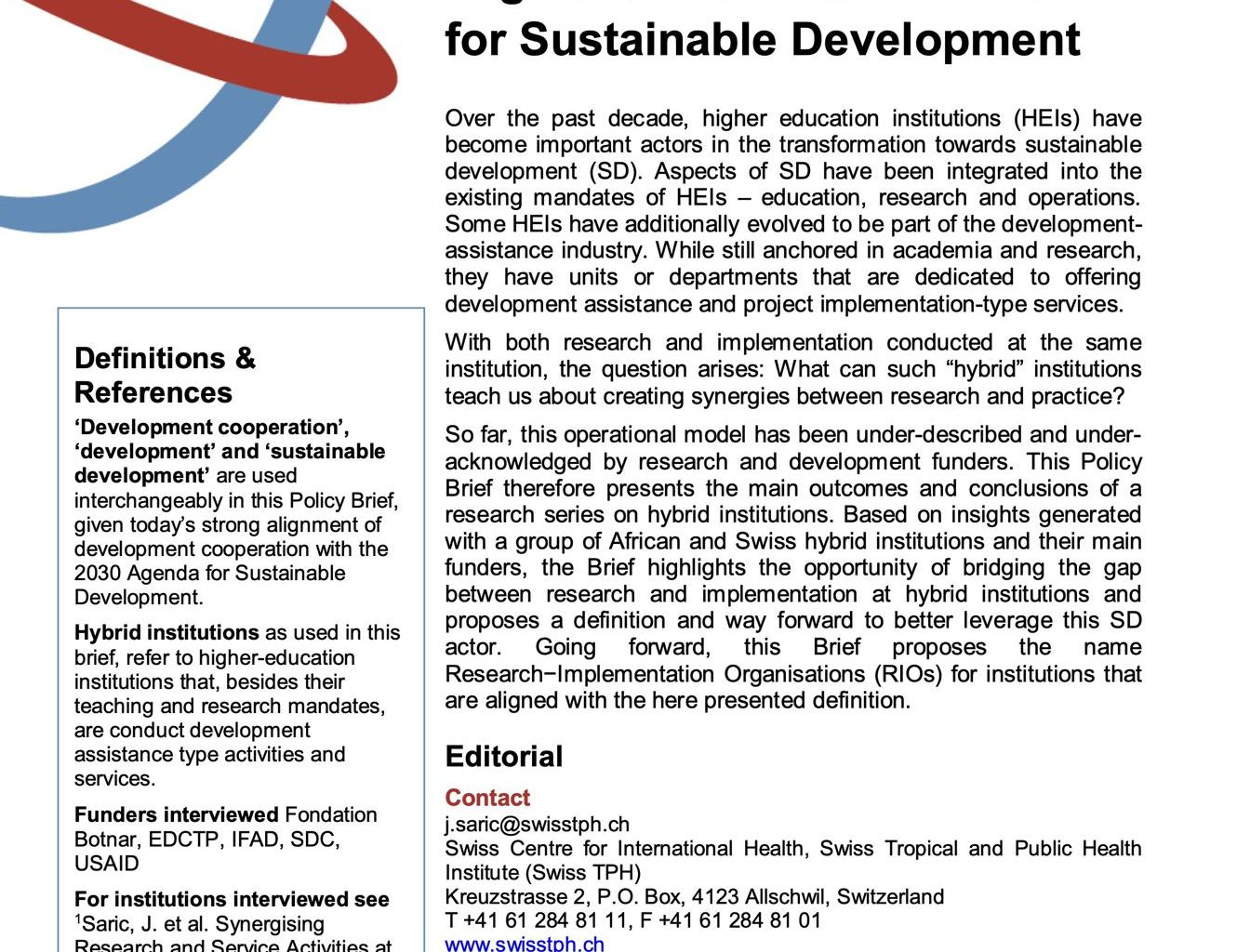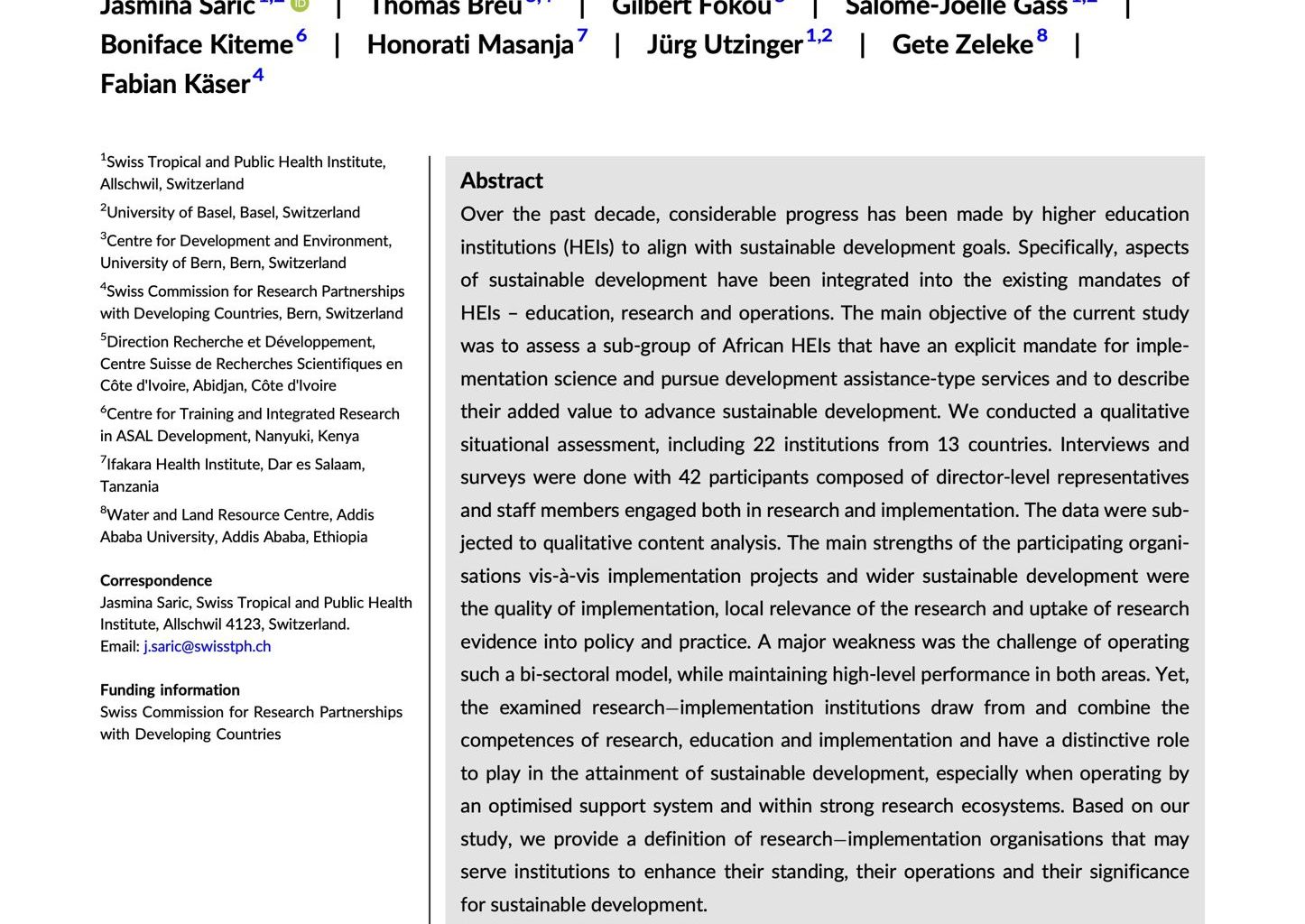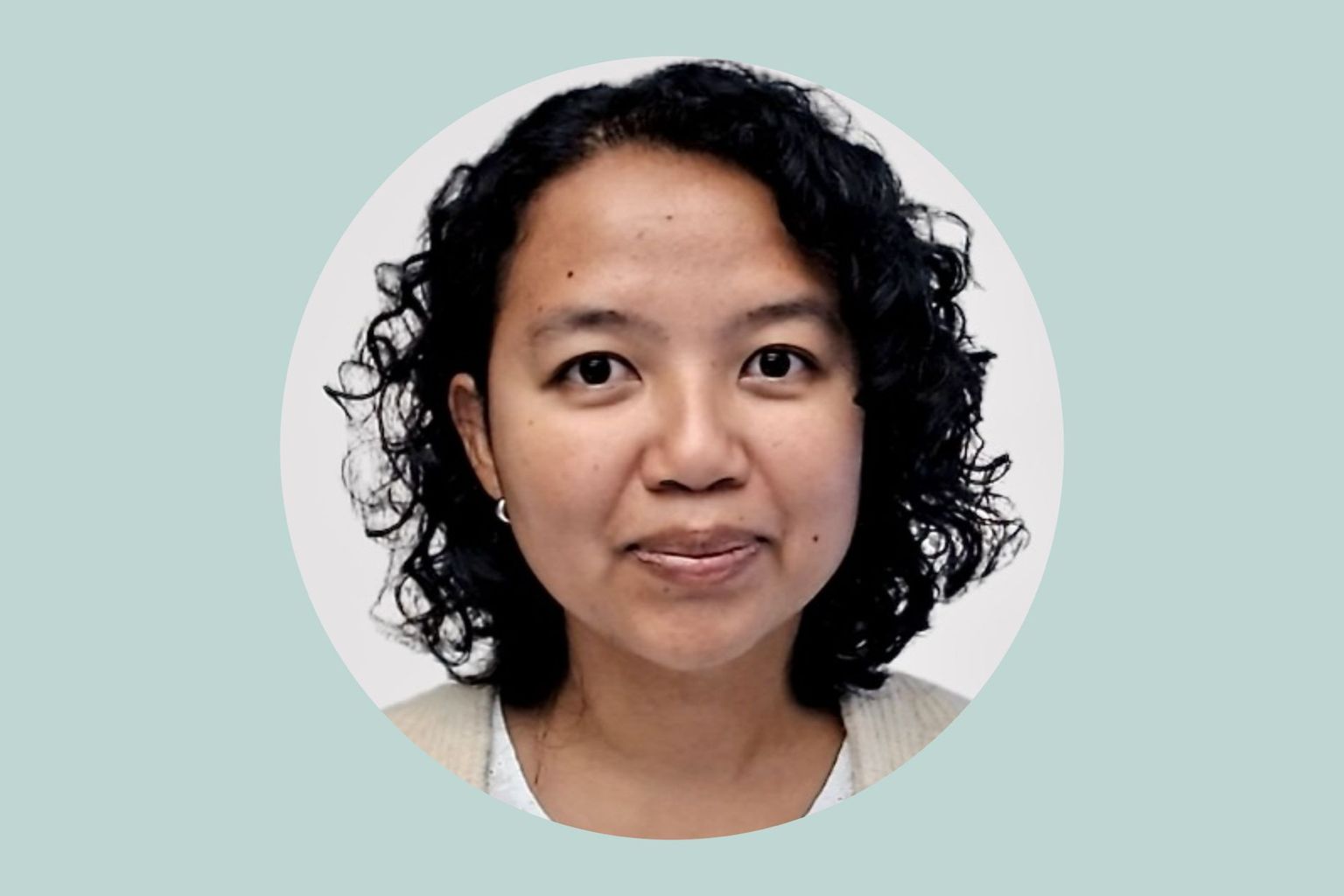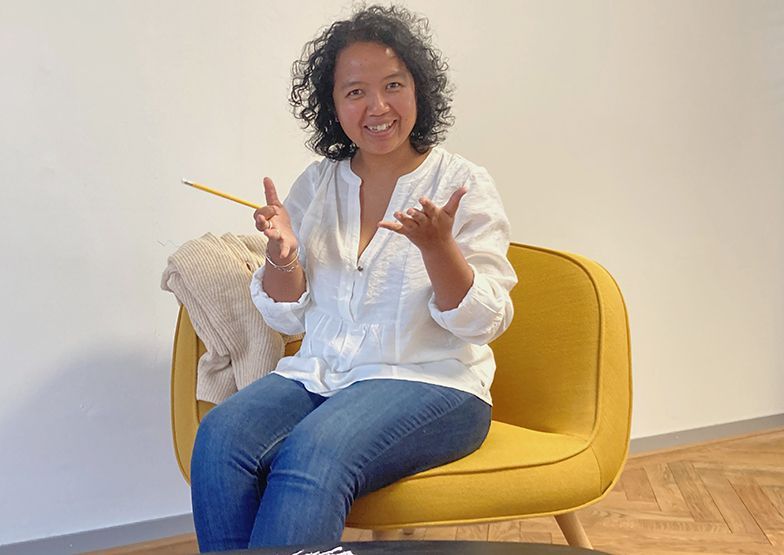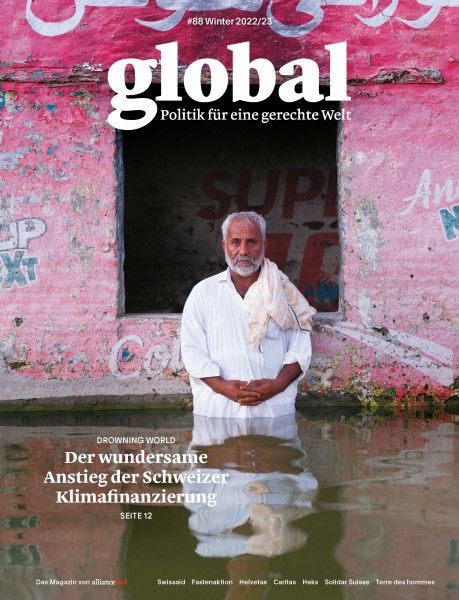- News
Die EU agiert in der Forschungszusammenarbeit mit Afrika deutlich moderner als die Schweiz
1/8- 2023
- Factsheet
Research−Implementation Organisations and Their Role for Sustainable Development
2/8- 2022
- Scientific paper
Research−implementation organisations and their role for sustainable development
3/8- 2023
- Factsheet
The New Global Connect: Mega-Infrastructure Projects and Their Local Impacts
4/8- 2023
- Article
"Appeals for decolonising North-South collaboration in research"
Image: zvg5/8- 2023
- Publication
“Diversity is the key to decolonizing research”
6/8- 2022
- Publication
Qu’est-ce que la coopération internationale fait de la santé ?
Image: African Art at the British Museum. Photo: Paul Hudson/flickr.com; CC BY 2.07/8- 2022
- Report
Wenn die Forschung koloniale Züge annimmt
8/8
Annual Report 2022
With the launch of the Solution-oriented Research for Development (SOR4D) program, Switzerland has been provided with a new practice-oriented funding program for global research cooperation. The SOR4D succeeds the R4D program as a joint funding instrument of the SDC and the SNSF. The SOR4D program includes 19 million Swiss francs for the period 2022-2026. The first call attracted 75 proposals for interdisciplinary and practice-oriented research collaborations, of which seven are funded. Of the 98 proposals submitted in the second call, eight projects are expected to be selected. Thus, with a recognition rate of less than 10%, the SOR4D program is by far the most competitive funding instrument of the SNSF. The few other instruments for the promotion of Switzerland's global research collaboration are also considered to be highly competitive. The great number of applications shows the strong commitment and a diverse thematic Swiss research landscape for practice-oriented global sustainability research partnerships. However, Switzerland, unlike many other countries and the EU, lacks a clear vision and strategic direction for promoting global research collaboration. Such a vision and better coordination between funding instruments would help increase the impact of Swiss research and its contribution to sustainable development.
- A study by Alexandra Hofmänner shows where Swiss funding instruments for North-South research need to be improved and better coordinated. Findings from this study will be published in a scientific paper in 2023.
- The KFPE proposed changes for Switzerland's International Cooperation Strategy 2025-2028. The extent to which these proposals will be taken up will be seen when the strategy is published as part of the public consultation process in 2023.
- At an event for the associated members of the KFPE in November 2022, we exchanged views with representatives of Swiss funding organizations, the State Secretariat for Education, Research and Innovation, as well as the SDC and the Swiss Parliament on possible strategies for the future promotion of North-South research.

Further Activities of KFPE in 2022
Publications
Contact
SCNAT
Commission for Research Partnerships with Developing Countries (KFPE)
House of Academies
PO Box
3001 Bern
Switzerland

